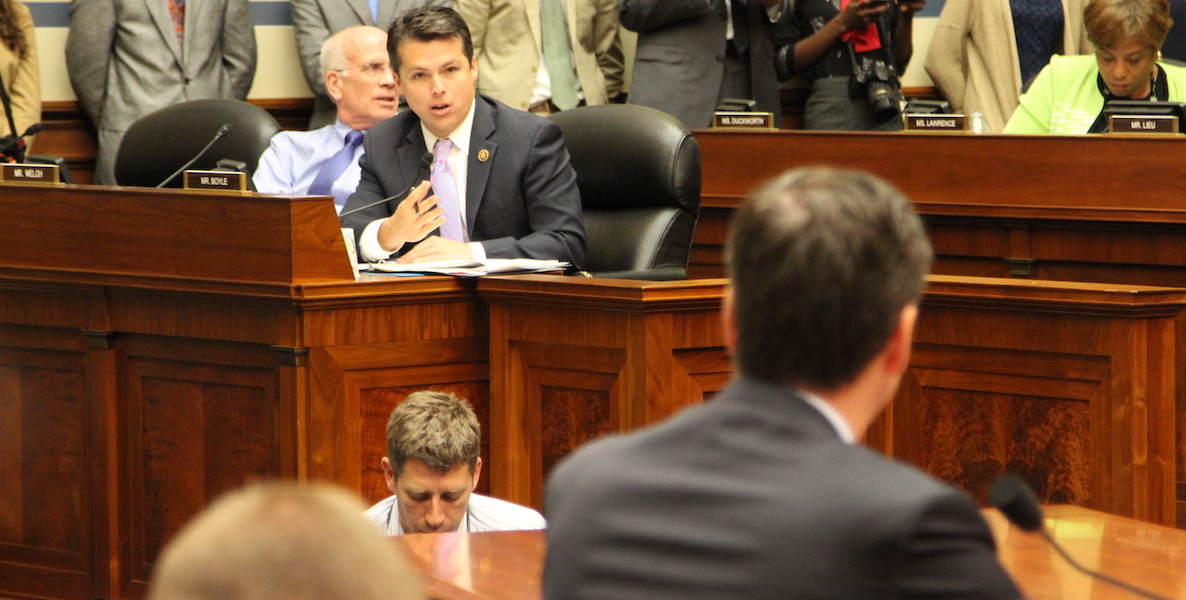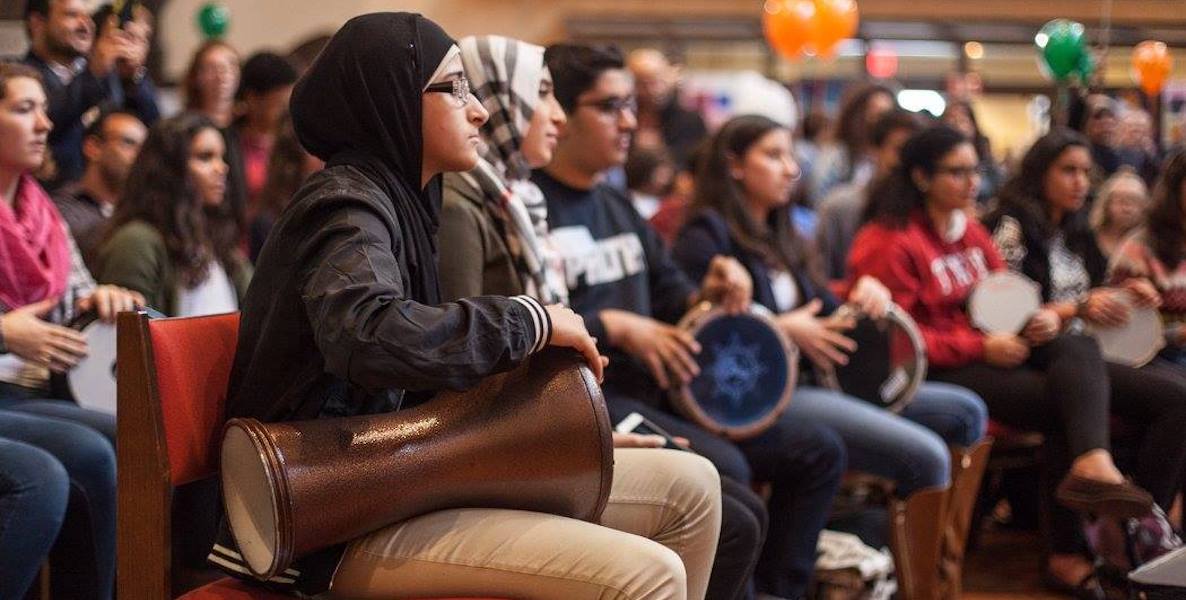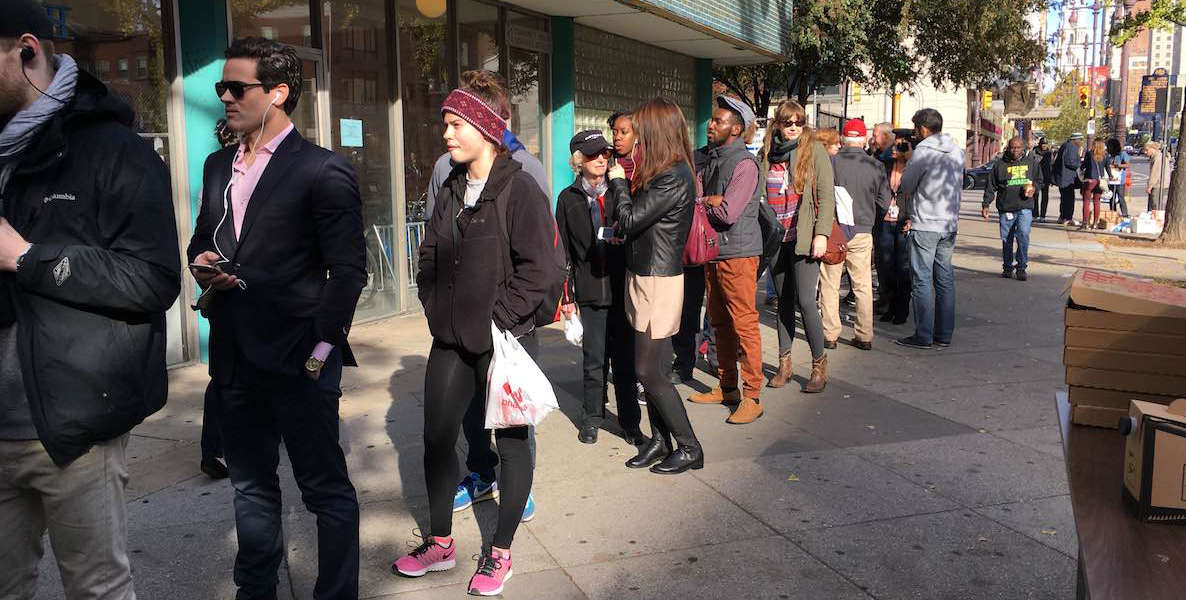When Abraham Lincoln was elected president in the election of 1860, it set off a clash between Northern and Southern states. White Southerners could hardly have been expected to reject the economic reality of a slave society on which they depended. Meantime, the urbanizing, industrializing North was on an economic trajectory in which slavery had ceased to be useful, and thus a moral position against it could take hold. Both were understandable in that they represented economic realities from which people could hardly escape, but one clearly represented progress while the other represented capitulation to the past.
So it goes today, when, to speak in gross but reasonably accurate generalities, the Trump half of America is rural and exurban. The other half lives in the core cities and their closer-in suburbs. Both sides see the other as an existential threat.
These are two separate worlds because they are based in separate material realities. Trump World finds its economic basis in the industrial and manufacturing economy, the military, and in domestic law enforcement and corrections—prisons, in other words. Urban World finds its economic basis in high-end service sectors that tend to cluster in larger cities and their nearby suburbs, such as higher education, health and medicine, the law, and finance; and their ancillary, lower-end service sectors, namely hospitality.
Trump World is concerned with the lack of good jobs, about which it believes elites largely don’t care; the erosion of a sense of community and a traditional American way of life; the declining significance of American power in an increasingly chaotic world; and the encroachment of that world into America through immigration. The Urban World believes that the traditional American way of life is premised on intolerance, and that new traditions more accepting of difference are needed; that big cities are the basis for both a new economy and a new sense of American community; and that national borders are false constructs that encourage nationalism and military-based solutions, and which divert us from crises that require global solutions, most notably climate change.
Similar to the U.S. Constitution, the Home Rule Charter of Philadelphia is a rule book that reflects the ideals of our city. Yet unlike the Constitution, there is very little of a narrative surrounding our Charter which explains its ideals in a way that socializes city residents into a greater recognition of what it means to be a citizen of Philadelphia.
Perhaps nothing better captures the progressive, forward-looking orientation of Urban World versus the regressive, backward-facing orientation of Trump World than the fact that, as Mark Muro and Sifan Liu at the Brookings Institution have found, “The less-than-500 counties that Hillary Clinton carried nationwide encompassed a massive 64 percent of America’s economic activity as measured by total output in 2015. By contrast, the more-than-2,600 counties that Donald Trump won generated just 36 percent of the country’s output—just a little more than one-third of the nation’s economic activity.”
The Civil War was premised on a convenient geographic divide, constructed over time through such things as the Missouri Compromise, the Mason-Dixon line, and the demarcation of free and slave states. The divisions between Trump World and Urban World are far messier; metropolitan areas do not coincide with state borders but are spread, roughly speaking, across the edges of the United States, surrounding Trump World. Moreover, metropolitan areas are fragmented among thousands of local governments. Whereas the conflict that defined the Civil War was one between the states, the conflict between Trump World and Urban World is one between local governments and the states.
How can Urban World brace itself for its accelerating crash into Trump World? We need to reconstruct American federalism so that cities take their rightful place alongside states as sovereign powers. The first steps are to create a stronger sense of citizenship based on the unique and fundamental virtues of cities; to strengthen the partnership between cities and universities; and to make moves toward the revival of municipal consolidation by building metropolitan-wide political coalitions. The next steps would be to then actually consolidate metropolitan areas into single larger cities, take back power from the states or make new city-states, and fundamentally rethink the role of our most powerful city institutions, especially the police and schools.
Institutions do not change easily. But the city as an institution is also a reflection of our ideals, and the way to effect change is to realign our ideals with our new reality. Over the next few weeks, I’ll introduce three modest proposals that should move us toward that goal, and hopefully jumpstart a conversation about how Urban World can begin to brace itself against a newly empowered Trump World.
Make the City Charter a Moral Document
The United States Constitution is a rule book which reflects the country’s ideals with regard to governance and citizenship. Yet someone who was unfamiliar with the larger narrative of the American founding might be hard pressed to discern those ideals just by reading the Constitution, which is one reason that the naturalization test for U.S. citizenship includes questions about American history. In fact, the ideals reflected in the Constitution are more clearly expressed in other documents such as the Declaration of Independence and the newspaper articles that comprise the Federalist Papers.

Get More From Every Story
We include boxes in nearly every story to help you take action. Click the boxes below to see how you can make Philly better.
The ideals reflected in the U.S. Constitution are sustained through education, possibly most importantly through civic lessons in elementary school. I ask the college students in my American government classes when they learned about the importance of our system of separate branches of government that check and balance one another. They all know what I’m talking about, and they all know its importance, but most don’t remember when they learned about it; they tend to have dim memories dating back to about the second or third grade.
By the time I meet my students in college we can poke fun at their civic education—but by and large it worked; they all have one shared sense that their country is based on a specific set of broad ideals reflected in legitimate institutions that seem so obvious as to be practically unquestionable. In fact, our poking fun at vague American ideals such as “freedom” or “democracy” is an important part of that socialization. Being socialized does not mean being brainwashed; internalizing a set of values in a free society provides the criteria by which we can critique that society for not living up to its values, or even suggest that maybe other values are more important.
Similar to the U.S. Constitution, the Home Rule Charter of Philadelphia is a rule book that reflects the ideals of our city. Yet unlike the Constitution, there is very little of a narrative surrounding our Charter which explains its ideals. There are no well-known ancillary documents that explain the ideals of our city, and there is at best an anemic apparatus for educating Philadelphians—especially young Philadelphians—about the unique and specific ideals reflected in our system of local governance.
When our Charter is discussed—typically only among lawyers, city officials, or other nerdy types—it is discussed in terms of technical reforms that would in all likelihood have either minimal or unintended consequences (term-limiting legislators, for instance, often has the unintended consequence of empowering lobbyists). What might be actually more impactful than technical reform would be the construction of a narrative around the Charter that explains the unique ideals it reflects, and which could be used as a tool for socializing city residents into a greater recognition of what it means to be a citizen of Philadelphia.
In Texas, school children are expected to be familiar with several important historical figures by the first grade—not just folks like George Washington, but specific figures in Texas history, such as Sam Houston, Stephen Austin, and Jose Antonio Navarro. In seventh grade, students are required to study Texas history. And students at the University of Texas at Austin who take the Advanced Placement Government and Politics Exam have to pass a “Test of Texas Government.”
Education is the key to constructing civic identity, and we could use education to create a stronger sense of the ideals reflected in Philadelphia citizenship. The most obvious place to start is with the city’s elementary and secondary schools, for which Texas might serve as an example. As laid out in the Texas Education code, school children are expected to be familiar with several important historical figures by the first grade – not just folks like George Washington, but specific figures in Texas history, such as Sam Houston, Stephen Austin, and Jose Antonio Navarro – and to identify both the United States and Texas on a world map. In the seventh grade students are required to study Texas history and learn, among other things, “the structure and functions of municipal, county, and state governments… the influence of the U.S. Constitution on the Texas Constitution, and… the rights and responsibilities of Texas citizens.” For students going to college at the University of Texas at Austin who have taken the Advanced Placement Government and Politics Exam, that exam only counts for college credit if they also pass a “Test of Texas Government.”
Besides schools, there are several other places where Philadelphia civics might be taught. For example, when anyone buys property in the city, they could be required to take an online Philadelphia citizenship test, similar to those that corporations give their employees on topics such as workplace harassment or data security. Having taken many of those online tests myself (Drexel requires them for its employees to be eligible for annual merit raises), I know they are annoying and easily mocked. But they work; if they didn’t, insurance companies wouldn’t lower premiums to companies who compel their employees to take them.
Civic education can be easily dismissed, especially in Philadelphia where the city grapples with so many serious and immediate problems. But civic education is a powerful tool which requires a minimal investment, and which can be put to many different purposes.
The idea of having an agreed-upon rule book for what it means to be a citizen of Philadelphia can unite our diverse population around common cause at a time when Urban World finds itself so often pitted against Trump World.
Next up: How rethinking the relationship between cities and their universities can transform the status quo.
Richardson Dilworth is the interim department head of the Department of Politics, the director of the Center for Public Policy and a professor of political science at Drexel University.
Header photo by A. Birkan ÇAGHAN via Flickr





